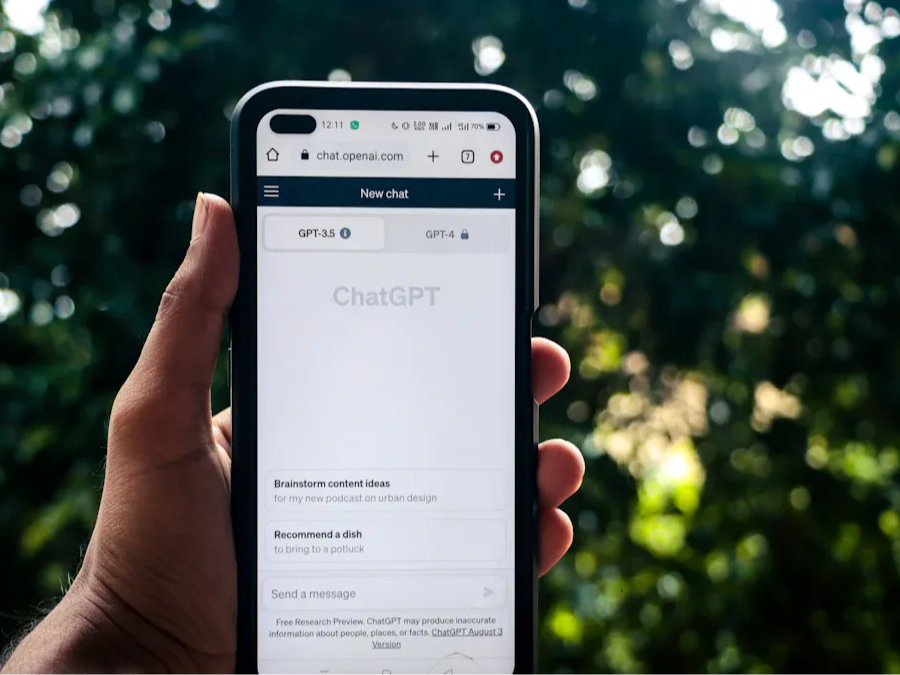Introduction: The AI Brain Dilemma
Artificial intelligence is no longer science fiction—it's in your pocket, your workplace, even your late-night Google searches. Among all tools, ChatGPT stands out as a revolutionary force. It's fast, convenient, and uncannily smart. But as we increasingly rely on it to write emails, summarize articles, or answer life's biggest questions, an unsettling concern arises: Are we becoming smarter with AI—or simply dependent on it?
In this article, we’ll explore the cognitive implications of using ChatGPT, addressing both the upsides and potential downsides. Whether you're a tech enthusiast, a student, or a self-improvement junkie, understanding AI effects on your brain is now more important than ever.
How ChatGPT is Reshaping the Way We Think
Let’s face it—ChatGPT is impressive. It can explain quantum physics like a friendly teacher, help you draft professional emails in seconds, or generate ten blog topic ideas before your coffee cools down. It’s fast, accurate, and endlessly patient. But here’s the cognitive catch: when we rely on AI to do our thinking, our brains start taking the backseat.
Over time, this habit can reshape the way we process information, solve problems, and even make decisions. In other words, ChatGPT isn't just changing what we do—it’s changing how we think.
The Convenience-Intelligence Tradeoff
On the surface, using ChatGPT feels like a massive win for productivity. Daily users report that it helps reduce friction in everything from brainstorming to decision-making. But here's the subtle danger: the more we outsource our thinking, the less active our brains become.
Cognitive science has long established that neural efficiency comes from mental effort—not shortcuts. When you skip the mental struggle, your brain doesn’t build the pathways it would otherwise need to retrieve, synthesize, or analyze information.
A 2023 study from the University of Cambridge highlights this concern: participants who relied on AI suggestions were more likely to adopt recommendations without critical evaluation, even when the suggestions were subtly flawed. What’s more, those users believed they were still in control, underscoring how AI can influence us below the level of awareness.
Imagine asking ChatGPT to summarize an article. Do you still read it in full? Do you check sources? Or do you trust the output as “good enough”? The answer matters—because passive consumption leads to cognitive atrophy over time.
Mental Shortcuts Become Habits
There’s a psychological term called cognitive offloading—where the brain delegates tasks to external tools (like notes, calculators, or now, AI). While helpful in moderation, overuse can lead to reduced working memory, attention span, and problem-solving agility.
Think about how many times you've asked ChatGPT to rewrite something, even when you could’ve rephrased it yourself. These “micro-outsourcing” moments add up. Your brain learns that it doesn’t have to exert effort if there's always an easier option. The result? You become more dependent on the tool and less confident in your own cognitive skills.
AI Use Without Reflection = Passive Thinking
The danger isn’t in using AI—it’s in using it passively. When we take what ChatGPT offers at face value, we risk losing the habits of questioning, verifying, and analyzing. Over time, this can dull our curiosity and weaken our sense of intellectual agency.
To avoid this, we need to reframe our use of ChatGPT: not as a shortcut, but as a conversation partner. One that helps extend your thinking, not replace it. Ask follow-up questions, compare responses, and reflect on what you agree or disagree with. That’s when AI becomes a catalyst for growth—not a crutch.
AI as a Mental Partner: Boosting, Not Replacing Intelligence
Despite these concerns, there's another side to the story: ChatGPT can enhance your cognitive capacity—when used right.
Amplifying Productivity and Focus
Let’s say you’re a university student writing a term paper. Instead of spending 45 minutes researching the background of a topic, ChatGPT can do the heavy lifting, giving you a structured overview within seconds. This frees your brain to focus on analysis and creativity.
This process is similar to using a calculator for math: it handles the grunt work so your cognitive energy goes toward strategy.
Personalized Learning and Cognitive Training
ChatGPT is also being used in education and therapy as a supplemental thinking coach. AI writing tools can offer real-time feedback, challenge your assumptions, and guide self-reflection—if you're open to engaging critically.
In fact, some educators are beginning to use AI to support Socratic-style questioning, prompting deeper thought rather than handing over answers.
ChatGPT an amplifier, not a substitute
Does ChatGPT actually change the brain? While we're still learning, early research offers valuable insights.
Neural Efficiency vs. Neural Atrophy
A study by the MIT Media Lab suggests that AI assistants like ChatGPT increase productivity but can decrease analytical persistence—our ability to stick with complex problems. The brain, like a muscle, strengthens with challenge and weakens with disuse.
Attention Span and Decision Fatigue
Heavy reliance on ChatGPT can reduce mental endurance. When you no longer need to retain or recall information because AI does it for you, your working memory suffers.
Yet, paradoxically, those who use ChatGPT to manage low-level tasks report having more mental space for strategic thinking, a cognitive tradeoff that mirrors outsourcing in real-world business logic.
From Tool to Crutch? The Future of AI and Human Intelligence
The most important question isn’t “Is ChatGPT good or bad?” It’s “How should we use it?”
The Risk of Passive Use
When users lean on ChatGPT to finish thoughts, generate ideas, or do repetitive tasks, it’s easy to become mentally passive. That’s when the line blurs between smart usage and cognitive dependence.
Over time, learned helplessness may set in—where users feel less confident solving problems without AI aid.
How to Use ChatGPT Without Losing Your Edge
- Ask, then Reflect: Use ChatGPT to start the thinking process—not finish it.
- Use It to Challenge You: Ask it to play devil’s advocate, or quiz you.
- Alternate Tasks: Do some tasks manually (e.g., brainstorming, drafting) before refining them with AI.
- Remember: critical thinking is not built by answers—it’s built by questioning.
Conclusion: Embrace AI, But Train Your Brain Too
ChatGPT is not the nemesis of intelligence—it is an amplifier. But as we would expect from any strong tool, its effects are completely at the mercy of how you apply it. The same hammer will construct a house or shatter a window. With AI, the intent and awareness are the difference.
If you leave ChatGPT to do all the mental heavy-lifting for you—writing, problem-solving, reasoning—you will eventually lose touch with your own mental endurance. It is not some grand, overnight change; rather, it is a gradual erosion of critical thinking, memory, and problem-solving ability. You are reduced to a passive receiver of ideas, not an active producer of them.
But treat ChatGPT as a scaffolding system and you will learn how to construct mental skyscrapers. Use it to organize your mind, clarify confusion, and question assumptions—not to bypass the process, but to intensify it.
Beginning with your own thoughts, and testing or elaborating them with the help of ChatGPT.
Verifying its results, instead of taking them for granted.
Making AI a dialogue, rather than a soliloquy.
In this manner, you transform ChatGPT from a convenience tool into a cognitive companion—that is, a partner in your cognitive growth, not in undermining it.
Finally, the future of intelligence is not a race for human versus machines. Not whether AI is smarter at composing, or at calculation, or at reasoning. But how we co-evolve. The most intelligent humans in the age of AI will not be those who reject those tools, or those who over-rely on them—but those who will lean in when they need to, and step away when they should.
The future is not human or AI. It is human + AI, in unison—your brain the driver, AI the co-pilot. Exercise your mind. Sharpen your inquisitiveness. And when you need a boost, have AI be the catalyst, not the autopilot.
FAQs: ChatGPT & Cognitive Impact
Q1: What are the positive effects of using ChatGPT daily?
It can improve productivity, spark creativity, and help you organize ideas faster—especially when used as a brainstorming tool.
Q2: Can ChatGPT make us lazy thinkers?
Yes, if overused without active engagement. Like any automation, it risks reducing mental effort if not balanced with critical thinking.
Q3: Is AI making us more intelligent?
In specific contexts, yes—it boosts learning efficiency and focus. But true intelligence still requires human curiosity and reasoning.
Q4: How can I use ChatGPT without harming my cognitive skills?
Use it to assist, not replace. Start with your own ideas, then refine, challenge, and explore further with AI.
Q5: Will AI eventually replace human creativity and reasoning?
Unlikely. AI excels at patterns and prediction but lacks genuine consciousness, emotion, and ethical judgment—core to human thought.








